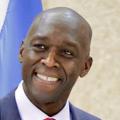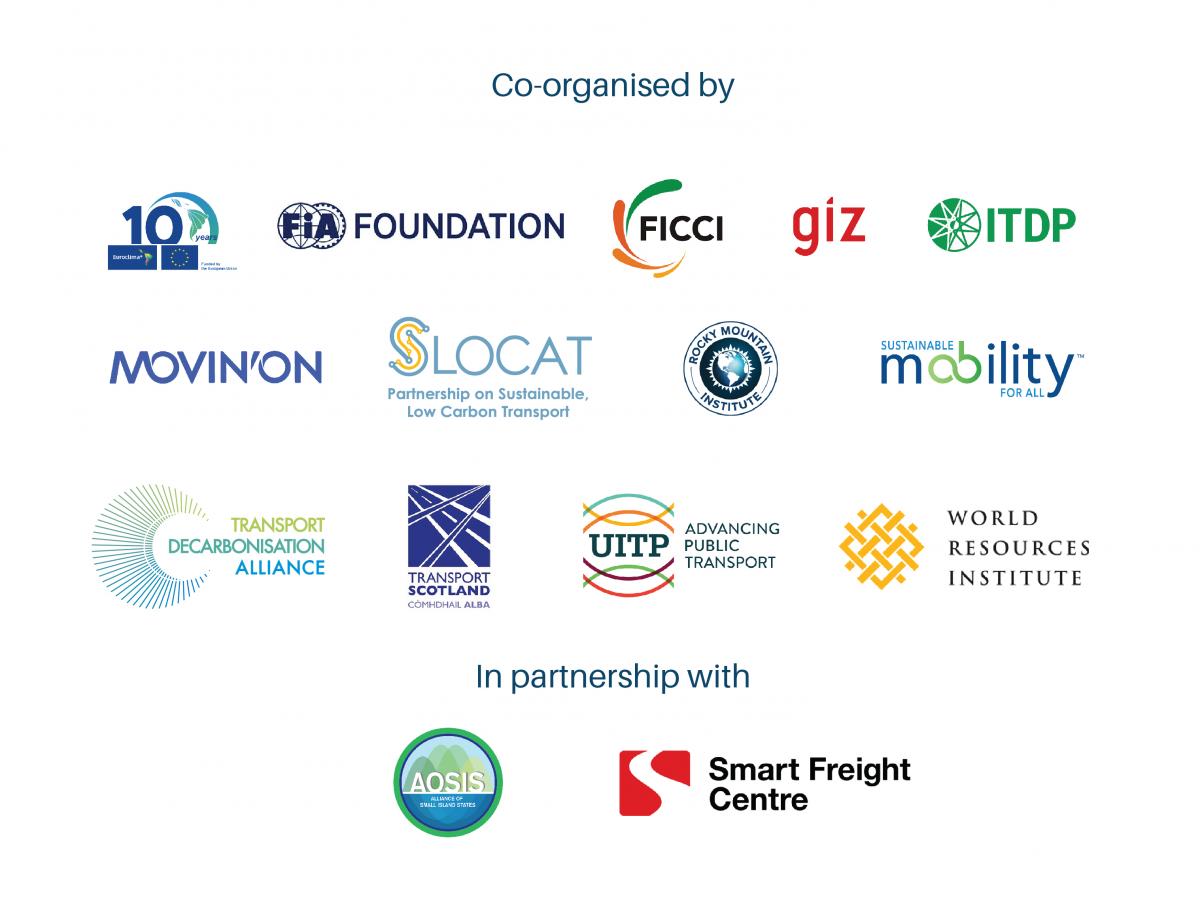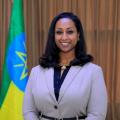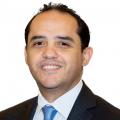En Route to COP26: How to make the economics for transport decarbonization work during this global recession?
Date: Wednesday, December 2, from 11:00 – 13:30 ET
About the event
Five years after the Paris Agreement on Climate Change, transport emissions are still rising. Transitioning to zero-carbon transport worldwide is essential to keep climate change in check, literally clear the air, and support human health and healthy economies. Due to the COVID crisis, COP26 could not be held in Glasgow as planned and is now scheduled for next year. This event is part of an overall plan from the international transport community to keep the momentum. This session will start by hearing different perspectives about the current pandemic/recession context and its impact on decarbonization. We will then turn to practitioners who will share their insight on what progress is being made in their country/city and examples of the key policies adopted, the size of investments made, the obstacles they faced (financial and political economy). This session will start a series of dialogue over the next twelve months to extract policy measures and good practice examples that impact the sector and are worth replicating.
Key objectives
- Discuss the risks and opportunities created by the global COVID context for decarbonization;
- Establish an understanding of the most stringent policy and investment barriers to achieve the “green mobility” goal/Paris Climate Agreements target;
- Launch a one-year workstream leading to COP26 to identify structured actions (policies, investments, innovative finance, and good practice examples) across the transport sector.
Expected outcome
- Launch of a series of events (including webinar series) to refine/expand the list of actions necessary to decarbonize the sector, coupled with good practice examples, across every transport sub-sector.
- Deliver (by COP26) a solid and evidence-based catalog of priority actions to scale-up investments and finance for transport decarbonization.
- Expand/refine the GRA’s list of economics and finance actions in the Green Mobility paper.
- The session will seek to leverage and build on SuM4All’s workstreams and the work done on decarbonization pathways in the UNFCCC context.
Target Audience
The primary audience includes policymakers, transport experts, corporate decision-makers, planners, and entrepreneurs who are willing to collaborate on driving collective and timely action for zero-carbon transport now.
Session Organizers
Session 8 is led by Sustainable Mobility for All (SUM4ALL) with support from the Transport Decarbonisation Alliance (TDA) and the World Resources Institute (WRI).
What to expect
| Moderator | Thoko Moyo, Associate Dean for Communications and Public Affairs, at Harvard Kennedy School |
|---|---|
| Speaker | Makhtar Diop, Vice President, Infrastructure |
| Opening Speaker |
H.E. Dagmawit Moges Bekele, Minister of Transport, Ethiopia |
|
Opening Speaker |
Ms. Arunma Oteh, Executive-In-Residence, SAID Business School, University of Oxford |
|
Panel 1 |
What are we up against? Is the current context helping towards decarbonizing the sector? Speakers will share their perspective on the current context and how it helps/deterring progress towards decarbonizing the sector. |
| Confirmed Speakers |
|
|
Panel 2
|
Tell me what worked This session will focus on organizing and better structuring the knowledge of what works and does not work. Speakers will share their perspective with examples of what has worked and how others can replicate it. |
| Speakers |
|
| Closing Speaker | Dr. Nancy Vandycke, Head, Sustainable Mobility for All (SuM4All) |
Speakers Bio
|
|
Moderator: Ms. Thoko Moyo, Associate Dean for Communications and Public Affairs, at Harvard Kennedy School
Thoko Moyo is associate dean for communications and public affairs, with overall responsibility for communications at Harvard Kennedy School. Before joining HKS in July of 2017, she worked as director of global strategic communications at the Ford Foundation in New York and as communications head for the Jobs Group of the World Bank based in Washington, D.C. Moyo started her career as a journalist working for the BBC in London. |
|
Opening Speakers & Panelists |
|
 |
Makhtar Diop Vice President, Infrastructure Makhtar Diop is the World Bank’s Vice President for Infrastructure, a position he assumed on July 1st, 2018. The Infrastructure Vice Presidency comprises Energy & Extractives, Transport, Digital Development as well as Infrastructure Finance, Public-Private Partnerships, and Guarantees. In this global role, Makhtar Diop leads efforts to develop sustainable solutions and help close the infrastructure gap in developing and emerging economies. Prior to this appointment, Mr. Diop served for six years as the World Bank’s Vice President for the Africa Region, where he oversaw the delivery of a record-breaking $70 billion to Sub-Saharan Africa to help tackle development challenges such as increasing access to affordable and sustainable energy; boosting women’s and youth’s economic empowerment; and promoting an enabling environment for more innovation and technology adoption. A passionate advocate for Africa’s right to clean and affordable sources of electricity, he also called for greater investment in renewable energy and pushed for greater regional interconnectivity in the power and transport sectors. |
|
|
H.E. Dagmawit Moges Bekele, Minister of Transport, Ethiopia H.E. Dagmawit Moges Bekele was appointed as Minister of Transport of the Federal Democratic Republic of Ethiopia in October 2018. After studying for her BA in Public Administration and Development Management (PADM), she worked as a Graduate Assistant Lecturer at Addis Ababa University (A.A.U). She acquired her MA in Public Management and Policy (MPMP) from the same department and university. She worked as a General Manager of Kolfe Keraneyo Sub-City of Addis Ababa City Government and then served as Micro and Small Enterprises Development Bureau Head of Addis Ababa City Government. Subsequently, she worked as a Deputy Bureau head of Addis Ababa City Government Trade and Industry Bureau then a Deputy Bureau head of Addis Ababa City Government Capacity Building Bureau. Before her current post, she has served as a Deputy Mayor and Communication’s Affaires bureau head of Addis Ababa City Government, Cabinet member of the City Government, and Board Chairperson of Addis Ababa Mass Media Agency Board. H.E. Dagmawit Moges is a Cabinet member of FDRE and a Member of the House of People’s Representatives of Ethiopia (HoPRE). She is a Board chairperson of the Ethiopian Roads Authority (ERA), Woldiya University, and Ethiopian Postal Service Enterprise. She is also a Board member of Ethiopian Airlines, Ethiopian Petroleum Enterprise, Investment board member, and Public-Private Partnership (PPP) board member.
|
|
|
Ms. Arunma Oteh, Executive-In-Residence, SAID Business School, University of Oxford Ms. Arunma Oteh OON is an Academic Scholar at St. Antony’s College and an Executive-in-Residence at SAID Business School, University of Oxford. Her research areas of focus are capital markets, economic development, and financial technology. She is also a member of the London Stock Exchange Africa Advisory Group. She was previously Treasurer of the World Bank, Director General, Securities and Exchange Commission Nigeria, Group Vice President, and Group Treasurer, African Development Bank Group. She started her career in 1985, at Centre Point Investments Limited, Nigeria. Ms. Oteh holds an MBA from Harvard Business School and a BSc, First Class Honors from the University of Nigeria, Nsukka. Ms. Oteh has also served on several boards and has received several awards notably Nigeria’s Officer of the Order of Niger (OON) National Honour. She was named one of Africa’s 50 most influential African women by Forbes Africa in March 2020. |
|
Panel 1: What are we up against? Is the current context helping towards decarbonizing the sector? |
|
|
|
Ahmed Al Qabany, Manager, Islamic Development Bank Dr. Ahmed Al Qabany is the Manager of the Climate Change Division at the Islamic Development Bank (IsDB). An engineer by training, Ahmed set up and is currently heading the Climate Change Division at IsDB. The Division is responsible for mainstreaming climate action in IsDB Operations, which includes increasing IsDB financing of green projects and climate adaptation of IsDB investments, in addition to capacity building in IsDB member countries. Since joining the Bank in 2012, he led and participated in the implementation of infrastructure projects in many IsDB member countries and was part of IsDB’s efforts to enhancing the sustainability of its projects through his work in the Infrastructure Department. Prior to joining the Islamic Development Bank, Ahmed worked in Environmental and Climate Change consulting, as well as research in Egypt and the UK. Dr. Qabany holds an MSc. in Engineering from the American University in Cairo and a Ph.D. from the University of Cambridge, UK. |
|
|
Michael Traver, Chair, Oil, and Gas Climate Initiative – Transport Workstream Dr. Michael Traver currently leads Aramco’s Commercial Transport Research activities from Aramco’s Detroit Research Center. As part of that responsibility, he leads a team of researchers focused on fuel & engine co-optimization and collaborative engagement with the commercial vehicle industry. Dr. Traver also chairs the Transport Workstream within the Oil and Gas Climate Initiative (OGCI), a voluntary, CEO-led oil and gas industry initiative to catalyze meaningful actions on climate change through collaboration and engagement. Dr. Traver holds a Ph.D. and MS in Mechanical Engineering from West Virginia University and a BS in Mechanical Engineering with an Aerospace focus from Worcester Polytechnic Institute. |
|
|
Tracey Crowe, Chief of Staff, Sustainable Energy for All (SEforALL) Ms. Tracey Crowe is from the United States and works as Chief of Staff and Director of Internal Programmes in Washington, DC. Tracey has a diverse background in international relations, clean energy, carbon markets, and communications. She has worked for a variety of organizations within the climate and clean energy sectors, including successfully managing the Secretariat for the Clean Energy Ministerial when it was hosted at the US Department of Energy. Ms. Crowe has also advised senior officials on clean energy policy and technology cooperation opportunities and has spearheaded clean energy-related campaigns and initiatives. Ms. Crowe has a Master of Science degree in Carbon Management from the University of Edinburgh as well as an undergraduate degree in Communications. She has also lived in Bonn, Germany. In her spare time, Ms. Crowe enjoys hiking and all types of travel adventures. |
|
Panel 2: Tell me what worked. Organizing and better structuring the knowledge of what works and does not work. |
|
|
|
John G. Graham, Principal Industry Specialist, Global Transport Group, Infrastructure Department - International Finance Corporation (IFC) Mr. John Graham is a Principal Industry Specialist with the Global Transport Group of the Infrastructure Department of the International Finance Corporation (IFC). As a Principal Industry Specialist, he leads sector issues related to transport as well as the origination, analysis, negotiation, and execution of the project and structured finance transactions in the infrastructure space globally. Previously, Mr. Graham was a Division Chief with the Infrastructure Department of the Inter-American Investment Corporation (IIC). Outside of his professional duties, Mr. Graham is an Adjunct Professor at Georgetown University and lectures at the Center for Strategic and International Studies (CSIS) in Washington, DC. Mr. Graham is bilingual in Spanish and Portuguese and holds a Bachelor’s degree from the University of Illinois at Urbana-Champaign and a Master’s degree from Georgetown University. |
|
|
Raul Alfaro-Pelico, Sustainability Manager, ACCIONA Mr. Raúl Alfaro-Pelico has more than 20 years of professional experience in infrastructure sustainability, climate change, and energy. As the Sustainability Manager at ACCIONA, Mr. Alfaro-Pelico develops ACCIONA’s strategic competitive position in Environmental, Social and Governance (ESG) matter at the global level, including the company presence in, exposure to, and leadership on ESG aspects with institutions, investors, private sector and civil society, amongst several stakeholders. He supports ACCIONA’s ESG position, thought leadership, and content development liaising with global coalitions (for example, UN Global Compact, World Economic Forum, Global Environment Facility, Carbon Pricing Leadership Coalition, World Business Council for Sustainable Development). Prior to ACCIONA, Mr. Alfaro-Pelico worked at the World Bank, as Manager of the World Bank-share of the Climate Investment Funds’ Pilot Program for Climate Resilience (PPCR); and the Global Environment Facility (GEF) team of the United Nations Development Programme, as Regional Technical Advisor for Energy, Infrastructure and Transport, with focus on Africa, Latin America, and the Caribbean. Mr. Raúl Alfaro-Pelico graduated in Business Administration at Universidad Carlos III de Madrid (Spain) and the London Metropolitan University (UK), holds a Masters in Economics from the University of London’s School of Oriental and African Studies, and is an Engineering Ph.D. Researcher at Lancaster University (UK). He speaks English, Spanish, French, and Portuguese. |
 |
Suzanne Greene, Program Manager, Sustainable Supply Chains initiative, MIT Center for Transportation & Logistics; Expert Advisor, Smart Freight Centre, and Global Logistics Emissions Council (GLEC) Suzanne Greene is the Program Manager of the Sustainable Supply Chains initiative at the MIT Center for Transportation & Logistics and is an Expert Advisor for the Smart Freight Centre and Global Logistics Emissions Council (GLEC). Suzanne collaborates with industry and stakeholders to develop new methods to calculate, report, and offset carbon emissions, improving our understanding of the climate impact of products we use every day. Suzanne's research focuses on metals, minerals, and freight transport based on their critical role in reaching the Sustainable Development Goals. She is co-author of the GLEC Framework (logistics sector guidance under the Greenhouse Gas Protocol), and co-founded the Coalition on Materials Emissions Transparency. She also sits on the Technical Advisory Group of the Science-Based Targets initiative. |
|
|
Ariel Alvarez, Project Manager, UNDP's MOVÉS project, Uruguay Ariel Alvarez is an Industrial Engineer from the Republican University of Uruguay with an MSc in Transportation from the ENPC School of Paris. He has international work experience in energy and transportation projects and developing academic studies. He also has experience teaching at the UCUDAL University in its Energy MSc programme in electric mobility. Ariel is currently the Project Manager of the GEF UNDP Movés Project, which is being implemented in the Energy and Environment ministries to promote more efficient and sustainable mobility.
|
| Closing Speaker | |
 |
Dr. Nancy Vandycke, Head, Sustainable Mobility for All Dr. Nancy Vandycke is an Economic Advisor of the Transport Global Practice in the World Bank. She led the creation of and currently heads “Sustainable Mobility for All”—a global platform that unites 50 international organizations worldwide to change the future of mobility. Dr. Vandycke also leads the strategic and global analytical portfolio of the Bank in transport, including impact evaluation, global tracking framework, and the Knowledge Note series. She is a member of the World Economic Forum’s Global Council on Advanced Energy Technologies and of the Multilateral Development Bank’s Group on sustainable transport. Before joining the World Bank, she worked at the International Monetary Fund and at the Center for Economic Performance and was an adjunct professor of economics at Georgetown University and the London School of Economics, from where she holds a Ph.D. in Economics. |
Register now! CLICK HERE
Don't forget to join the conversation online and connect with the community of action!
Event Hashtags: #enroutetoCOP26 #wearetransport #COP26 #COP26Action #netzero #SuM4All











